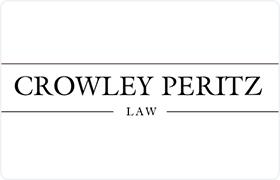Occoquan White Collar Crime Lawyer, Virginia
Sponsored Law Firm
-
 x
x

Click For More Info:
-
Crowley Peritz Law
10560 Main Street Suite 501 Fairfax, VA 22030» view mapCriminal Defense Law Over 20 Years Of Combined Experience
Our lawyers are experts in a variety of misdemeanor and felony crimes. We understand that choosing the best criminal lawyer for your case is not a simple task.
800-916-2741
Steve Duckett
Criminal, Felony, DUI-DWI, White Collar Crime
Steve Duckett is a lawyer in the state of Virginia who handles criminal cases. He has tried cases involving assault, drug crimes, DUI, gun charges,... (more)
Mary Margret Nerino
Criminal, DUI-DWI, Felony, Misdemeanor, White Collar Crime
Mary Nerino is a practicing lawyer in the state of Virginia who handles criminal cases. She has tried cases in assault, drug charges, domestic viol... (more)
Burton J. Haynes
International, White Collar Crime, Constitutional Law, Bankruptcy
Status: In Good Standing Licensed: 41 Years
Michael C. Sprano
Traffic, White Collar Crime, Constitutional Law, Antitrust
Status: In Good Standing
J. Taylor Monfort
White Collar Crime, Transactions, Complex Litigation, Criminal
Status: In Good Standing
John Julian Vecchione
Litigation, Lawsuit & Dispute, White Collar Crime, Consumer Rights
Status: In Good Standing
 Matthew Crowley Fairfax, VA
Matthew Crowley Fairfax, VA Practice AreasExpertise
Practice AreasExpertise



